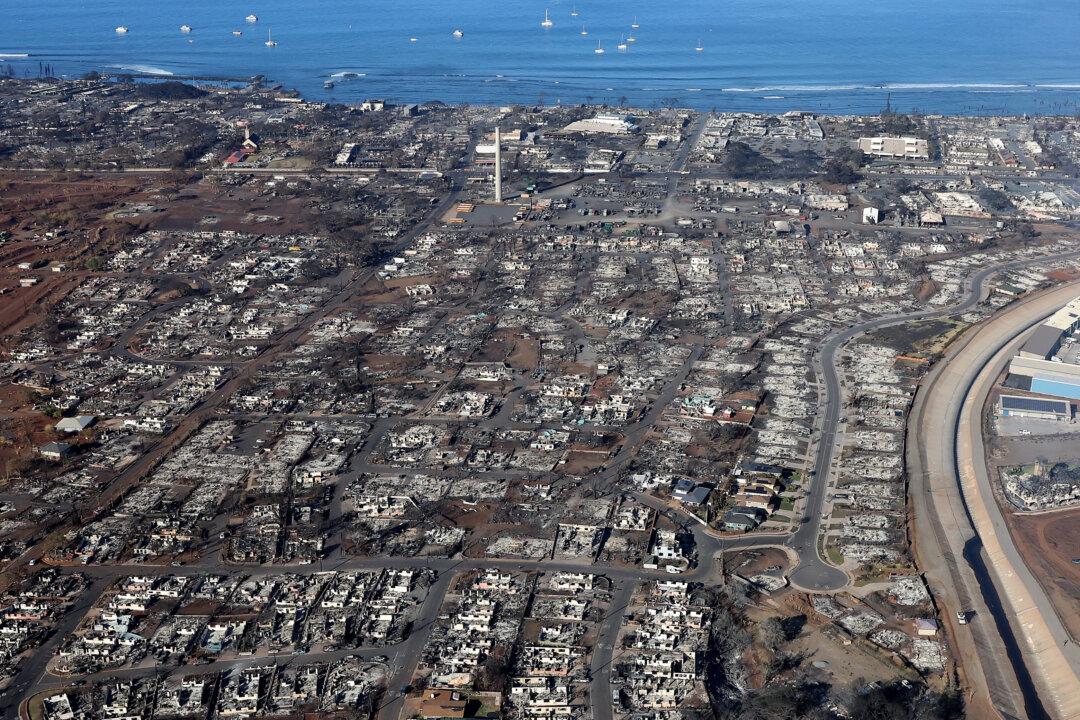Hawaii is investigating cases of survivors of Maui fires receiving unsolicited offers to buy their scorched land, Gov. Josh Green said Thursday.
The investigations come after the deadly fires devastated an estimated 2,170 acres in the Maui town of Lahaina, destroying at least 2,200 buildings and leaving many thousands more people homeless or displaced.





